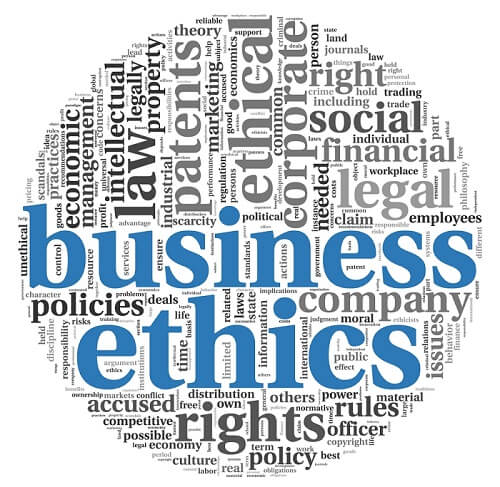From Business Ethics to Forced “Fair Play”
Abstract: Some thinkers are considering "business ethics" as "oxymoron" while others see it as an imperative to ensure the 'market' and the entrepreneurship. The dilemmas we examine in this essay, focuses on the responsibility of legal - artificial - entities such as companies, toward:
[A] persons (employees, shareholders and consumers)
[B] other artificial entities (organizations or systems as companies, society, state, etc.) and
[C] the natural environment.
These issues can be accessed through both traditional moral systems, Kantian deontology and utilitarianism.
While we are studying the topic an important question arises: Are the companies moral entities? Can we consider an artificial legal entity as person? This question leads us to distinguish the entrepreneur as a person and the company as a legal entity.
Companies are 'functional' entities, but this doesn’t makes them automatically, moral persons. And it is because the companies are neither the sum of the will, nor the desire, nor the intentions or the values of their shareholders and their workers or managers.
Companies do not have will, desires, intentions or feelings. They do not adopt their principles as free persons do, and they cannot act against their ontological purpose which is to create profit. Companies are tools in the hands of shareholders, and their only goal is the profit. The tools are not moral entities.
What we propose is to consider “business” as a “game” governed by rules, terms and conditions. Companies, market, workers, consumers, are what Wittgenstein defines as the “necessary conditions”. Without these the "game" (the business game in this case) would be ontologically impossible. What does it mean anyway? It means that although companies operate for profit, and although they cannot be classified as moral persons, if they want to continue the game of business, if they want to operate in a "sustainable" market (market that is allowing their activities and their ontological status), they should adopt a policy, that is not true "moral" behavior, but is guided by a spirit of "fair play". A "clean" game, which will allow the viability of the “others” (companies, consumers, employments etc.) not because their extermination is "immoral", but because their survival is essential and necessary for the continuation of this game.
Keywords: Business ethics, Kant, utilitarianism, corporate social responsibility
Gounaris, Α. (2008). From Business Ethics to Forced “Fair Play”. Business Ethics. Athens- Komotini : Sakkoulas A. Publications. pp 191 – 210. Retrieved February 4th, 2019 from https://alkisgounaris.gr/en/archives/from-business-ethics-to-forced-fair-play/
Full Text in Greek -->
Read full text in Greek


